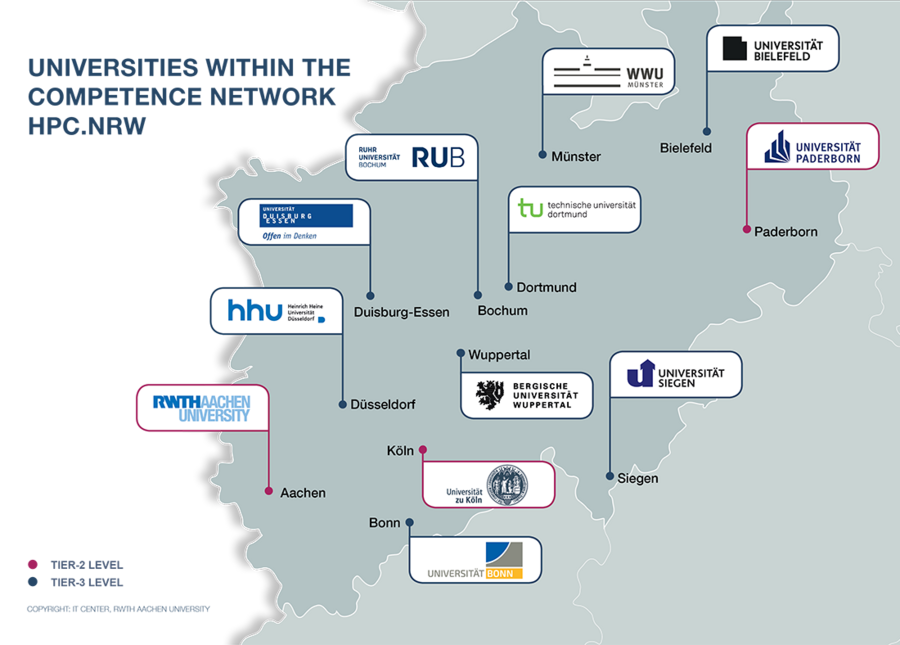PLEIADES as an Interdisciplinary Computing Cluster for the University of Wuppertal
In 2008, PLEIADES was originally founded by the experimental particle physics group as part of the ATLAS experiment at CERN. Over time, other working groups joined, for example from the fields of computational fluid mechanics or astro particle- and hadron-physics.
In june 2021, through cooperation of many research groups in the Interdisziplinäres Zentrum 2, the PLEIADES cluster has been extended to 14848 CPU Cores, a SAN Backend and a GPU Cluster, as part of the "Antrag auf Großgeräte nach Art. 91b GG". Funded by the Deutsche Forschungsgemeinschaft (DFG). 2304 additional CPU cores were added in an update in June 2022.
Involved research groups are:
- Experimentelle Teilchenphysik
(Prof. Dr. Wolfgang Wagner, Prof. Dr. Christian Zeitnitz) - Teilchenastro- und Hadronenphysik
(Prof. Dr. Karl-Heinz Kampert, Prof. Dr. Klaus Helbing) - Strömungsmechanik
(Prof. Dr. Uwe Janoske) - Theoretische Elektrotechnik
(Prof. Dr. Markus Clemens) - Lehrstuhl für Großflächige Optoelektronik
(Prof. Dr.-Ing. Patrick Görrn) - Hochfrequenzsysteme in der Kommunikationstechnik
(Prof. Dr. Ulrich Pfeiffer) - Angewandte Mathematik und numerische Analysis
(Prof. Dr. Michael Günther, Prof. Dr. Matthias Ehrhardt) - Zentrum für Informations- und Medienverarbeitung
(Leitung: Hans-Jörg Bauer) - Hochleistungsrechnen / Softwaretechnologie
(Prof. Dr. Michael Bolten) - Stochastik
(Prof. Dr. Hanno Gottschalk) - Optimierung mechanischer Strukturen
(Prof. Dr.-Ing. Axel Schumacher) - Computergestützte Modellierung und Zuverlässigkeit in der Produktentwicklung
(Prof. Dr. Swantje Bargmann, Prof. Dr.-Ing. Stefan Bracke) - Lehrstuhl 'Computational Civil Engineering'
(Prof. Dr. Lukas Arnold)
More information is also available at the page of the IZ2.

